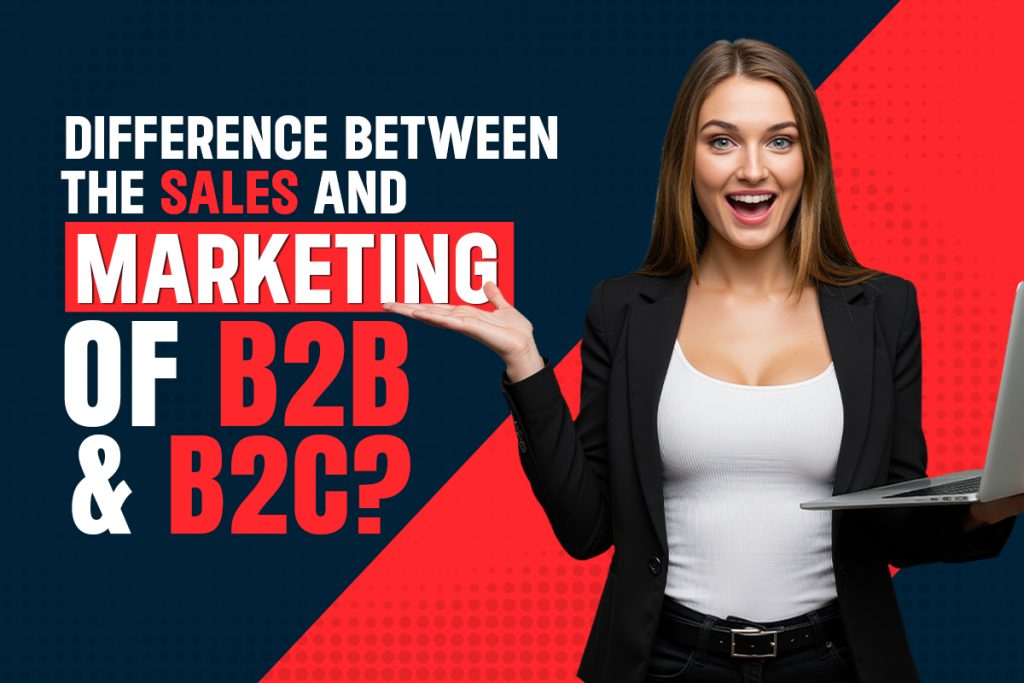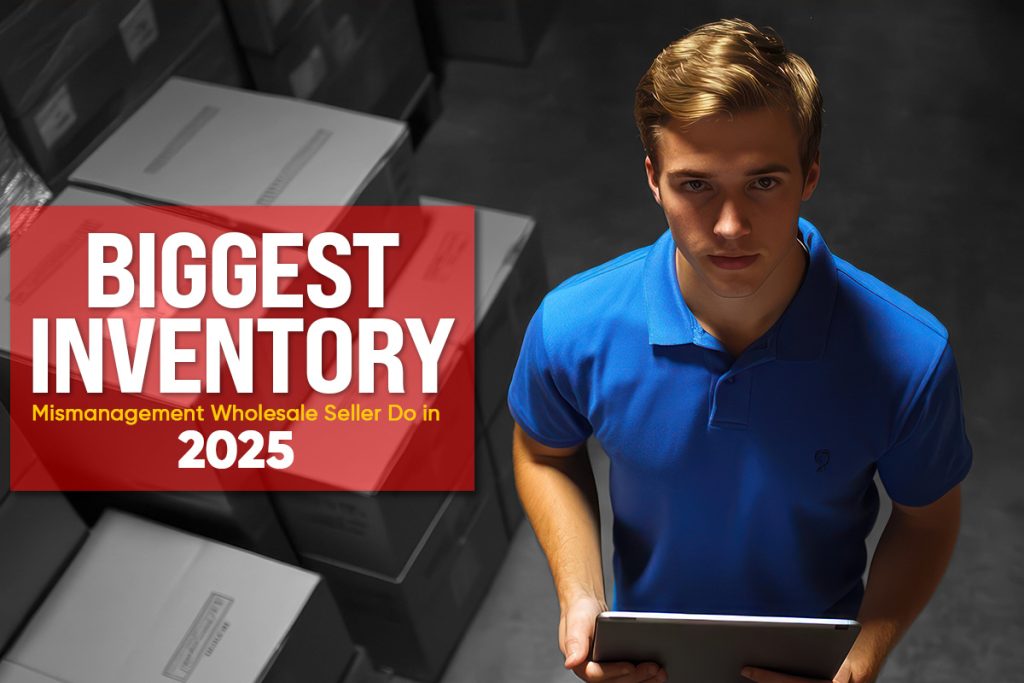If you’re in business and you’ve never heard of business to business (B2B) eCommerce, don’t worry; it’s just a way for businesses to buy and sell from each other using the internet. In 2025, it’s becoming really popular and super important. Companies are using B2B eCommerce to work better, connect faster, and grow smarter. Whether you make things, sell them in large amounts, or help deliver them, learning about B2B eCommerce can help you do more and make more money. Here is a proper guide from Wholesale Connections about B2B e-commerce, its types, and important factors for B2b commerce business growth.
What is Wholesale B2B eCommerce?
B2B ecommerce means business-to-business sales online. Instead of selling to regular people, like in Wholesale stores or any marketplace, this is when businesses sell to other businesses. For example, a company that makes t-shirts might buy fabric or buttons online from another company. It’s like shopping online but for business stuff.
Types of B2B eCommerce
There are several types of B2B eCommerce. Let’s look at some:
Wholesale eCommerce
This scenario occurs when one business purchases substantial quantities of products from another company, typically at a reduced price. For instance, consider a t-shirt brand that decides to buy thousands of buttons online in bulk. This strategy not only helps them save money but also ensures they have enough supplies for their production needs.
Manufacturers
These types of businesses specialize in manufacturing products and distributing them in large quantities to other companies. To effectively manage their operations, they require robust websites that not only showcase real-time inventory levels but also possess the capability to efficiently handle substantial orders. This ensures smooth transactions and enhances customer satisfaction.
Wholesale Distributors
Wholesale Distributors play a crucial role in the supply chain by purchasing products directly from manufacturers and then selling those items to various retail stores. To effectively manage their operations, they require specialized tools that provide real-time information on product availability, assist with processing bulk orders, and offer competitive pricing insights.
Mixture of B2B and B2C eCommerce
This business model represents a unique blend where you engage in selling products to other businesses, which in turn sell those products to everyday consumers. Essentially, it functions as a dual support system for both wholesale and retail operations, all managed from a single platform. This approach allows for streamlined processes and enhanced market reach.
B2B Marketplaces
These are significant online wholesale marketplaces in the United Kingdom where businesses can come together to meet, buy, and sell various products and services. Some of the most popular b2b commerce platforms include Wholesale Connections, Amazon, eBay, and Alibaba. Each of these platforms offers unique features and opportunities for businesses to expand their reach and enhance their sales potential.
Digital Transformation in B2B eCommerce
In the old days of ecommerce and b2b, businesses would call each other, send emails, or meet in person to buy things. But now, a lot of that is happening online. This change is called digital transformation. It means using technology and websites to make everything faster and easier. Businesses are using smart tools, helpful data, and automation to make better choices.
Digital Marketing on Websites
People who purchase wholesale clothing for their businesses are also shopping online in their personal lives. They’ve come to expect the same fast, simple, and seamless experience—whether they’re buying for home or for work. That means seeing what styles and sizes are in stock, checking out quickly, getting fast shipping, and accessing support easily. If a wholesale clothing supplier doesn’t deliver that kind of experience, buyers may choose to shop elsewhere.
Online Orders Make Things Easier
When someone places an order online instead of calling or emailing, that’s eCommerce. It’s simple and saves a lot of time. It also helps avoid mistakes and makes the whole process smoother for everyone.
Important Factors for B2B Business Growth

Picking the Right B2B Platform
A B2B eCommerce platform is the backbone of your online store. Whether you’re selling wholesale clothing, fancy dress costumes, home decor, electronics, or leather goods, the right platform helps manage your website, track inventory, process orders, and handle payments. It’s essential to choose a solution tailored to your business needs. For example, you might need to offer tiered pricing for different customer segments, manage bulk orders for wholesale clothing buyers, or handle seasonal spikes in fancy dress costume sales. A strong platform supports multiple payment methods, provides real-time order tracking, and scales with your business—no matter what you’re selling.
Why the Supply Chain Matters in B2B eCommerce
Supply chain integration means connecting everything, like your inventory, shipping, and order systems. It helps make sure customers get what they ordered on time. It also helps avoid running out of stock and inventory mismanagement. When everything works together, it’s easier to see what you need, where it is, and when it will be delivered.
Building Strong Customer Relationships
Even though things are becoming more digital, relationships still matter a lot. B2B eCommerce gives you tools to keep customers happy, like offering special pricing, easy reorders, and loyalty rewards. When customers feel cared for, they come back again and again.
Growing Your Business with Digital Marketing
Once your online store is up and running, you can think about growing your ecommerce for b2b. That means selling more types of products, reaching new places, using automation, and maybe hiring more help. With e-commerce digital marketing on Instagram, TikTok, Facebook and YouTube, you can sell to people around the world and handle orders easily. Not only does it sell, but it also helps you find the UK Wholesale Products.
Making Things Personal
B2B customers want things to feel personal. They want to see prices and products that fit them. Good platforms let you show custom deals, recommend items based on past orders, and even give industry-specific discounts.
Smart Marketing Tips for B2B Marketing
You’ve got your online store; now, how do you get customers to visit and buy?
-
SEO (Search Engine Optimization)
This helps people find your site on Google. Use the right words, write helpful product info, and make sure your site loads fast.
-
Email Marketing
Send emails with news, updates, and offers. It keeps your customers informed and helps bring in sales.
-
Conversion Rate Optimization (CRO)
This means turning visitors into buyers. Try different designs, use clear buttons, make checkout easy, and offer live help. Little changes can make a big difference.
Conclusion
B2B eCommerce is here to stay. Whether you’re just starting or already doing well, moving online can help you grow faster, reach more people, and save time. Just remember, you don’t have to do it all at once. Start small, learn as you go, and keep improving. These are the must know strategies for e-commerce that tell the real difference Between the Sales and Marketing of B2B and B2C. There’s plenty of room for your business in the world of B2B eCommerce.






